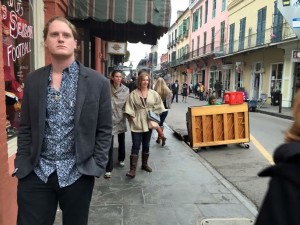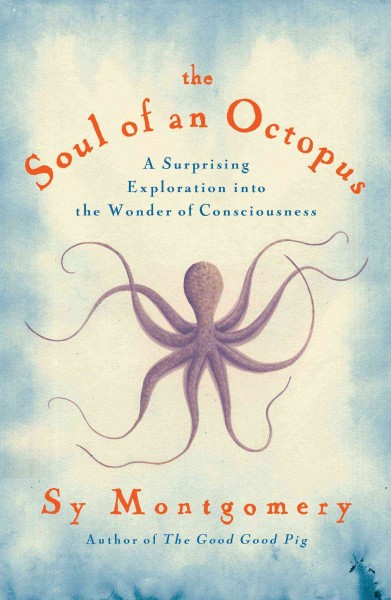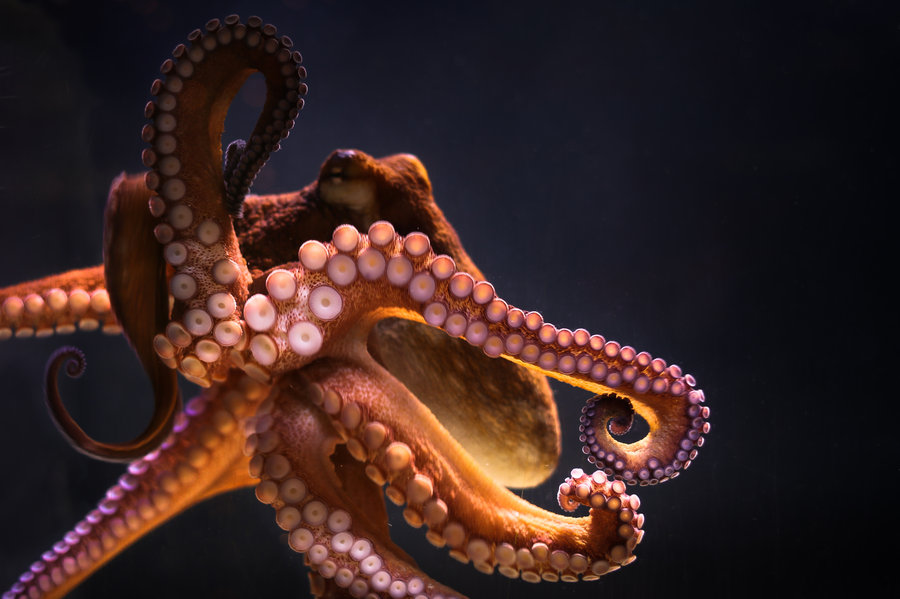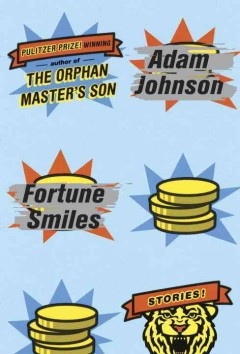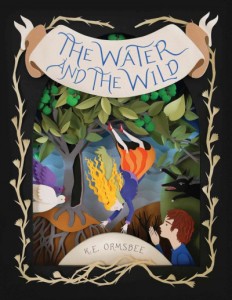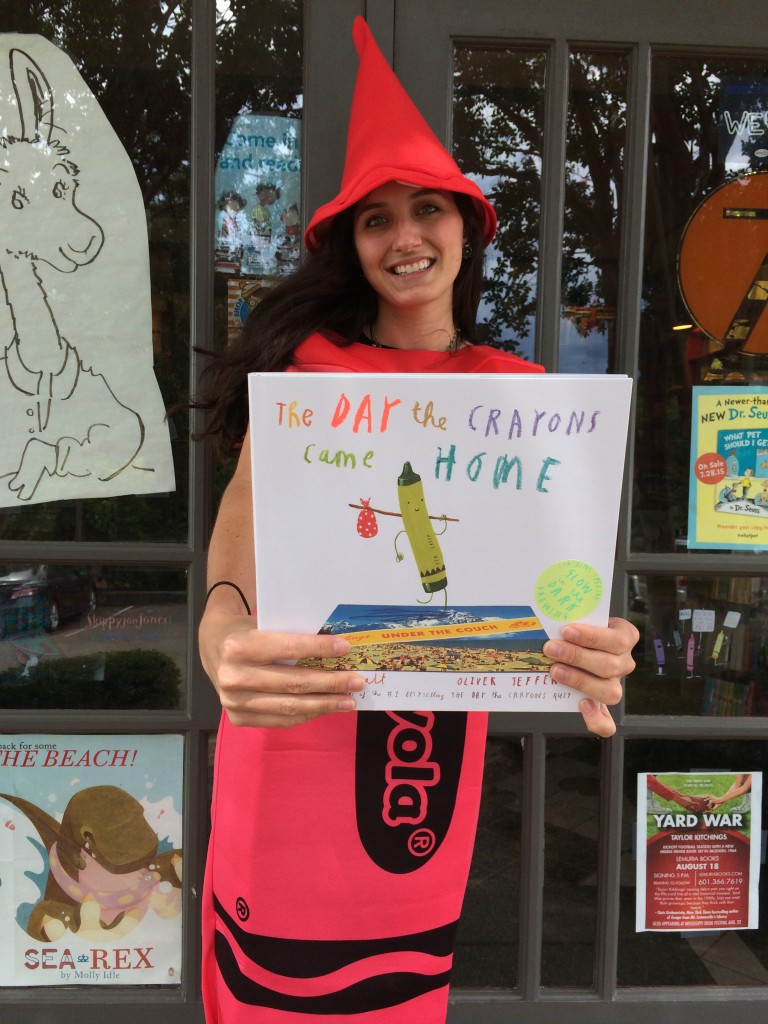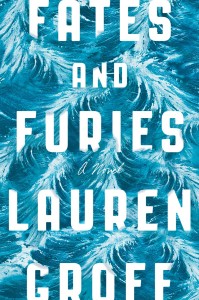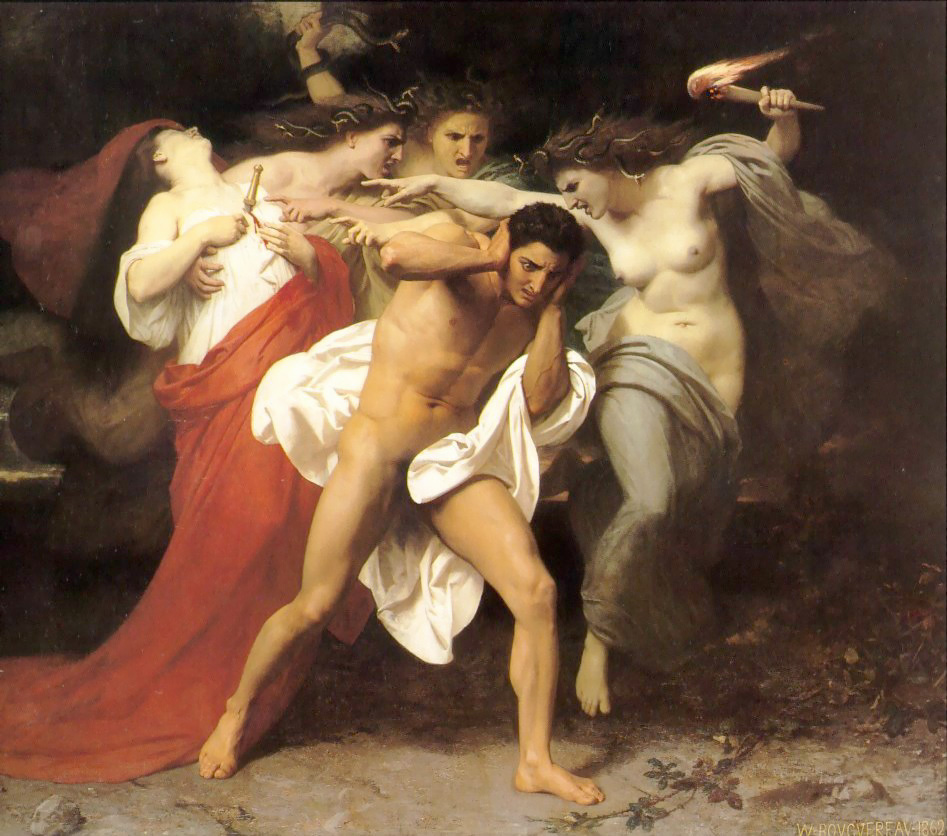 How long have you worked at Lemuria? 3 years? 3 and a half years? I’ll have to consult my palm pilot.
How long have you worked at Lemuria? 3 years? 3 and a half years? I’ll have to consult my palm pilot.
What do you do at Lemuria? I manage the fiction room, run all of our social media and the blog, and I’m currently running the operational side of our First Editions club along with my coworker Austen. I also keep people on their toes about what color my hair will be from one day to the next (currently working with a plum-apricot thing).
What’s currently on your bedside table (book purgatory)? Watchmen by Alan Moore, Room by Emma Donoghue, William Gay’s posthumous novel Little Sister Death, Naked at Lunch by Mark Haskell Smith, Sophia by Michael Bible, The Man Who Corrupted Hadleyburg by Mark Twain, and about 15 more. There’s hardly any room for anything else on my bedside table at this point.
How many books do you usually read at a time? Just one. If I try to juggle, I end up reading nothing at all. Not very efficient, but it gets the job done.
I know it’s difficult, but give us your current top five books.
The Orenda by Joseph Boyden
Cartwheeling in Thunderstorms by Katherine Rundell
Plainsong by Kent Haruf
Free Men by Katy Simpson Smith (out in February- I cannot WAIT to talk to you guys about this one)
Little Women by Louisa May Alcott (this one never leaves the rotation)
What did you do before you worked at Lemuria? I worked at Burberry as a men’s clothing specialist, and before that I (very, very briefly) sold Buicks. It was a hilarious disaster. I’ve also spent way too much time as a barista, been a summer camp program director, and slung chicken wings- making me perpetually smell like fry grease. My life is dripping with glamour.
If you could share lasagna with any author, dead or alive, who would it be? What would you ask them?
Dear Oscar Wilde,
Thank you for coming to my lasagna dinner party. While I appreciate your very obvious distaste for the other guests in attendance, I have to ask that you please stop telling them you have to leave due to your “hereditary severe chill”. I assure you, there is no such thing; please have a seat. Would you mind terribly if I asked you several personal, pressing questions about your personal life and the prejudice you faced due to your sexual orientation while living in England? You do mind? I’m so sorry. Enjoy your lasagna.
Why do you like working at Lemuria? I’m surrounded every day by creative, funny people who love books as much as I do, and I get to sit down and consider these books in every task that is on my to-do list. It’s really a wonderful job. Also, no dress code, so I get to wear my Buffy the Vampire Slayer cosplay every day. Just kidding. I wear wizard robes, I just wanted to make you think I was cool.
If we could have any living author visit the store and do a reading, who would you want to come? Someone like Johnathan Tropper. I like to imagine that he’d do a damn good reading, then we’d all go out for drinks after and end up becoming best friends for life and getting a time share in Florida together.
If you had the ability to teleport, where would you go first? I’d go straight to a flat in London with huge windows overlooking the city. It would be raining and twilight and Miles Davis would be playing in the background. I would drink wine and eat lots of pasta. Yes, I thought about this for a long time before I answered.


